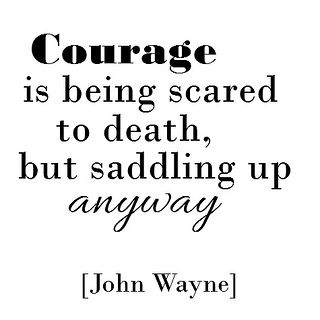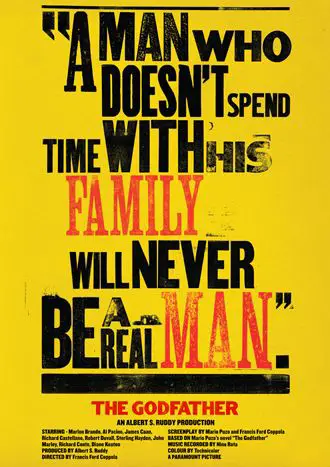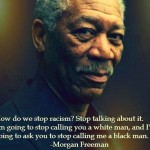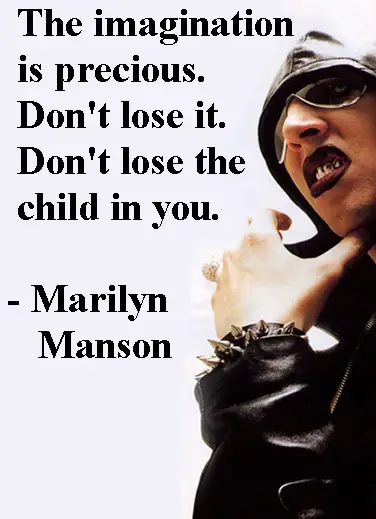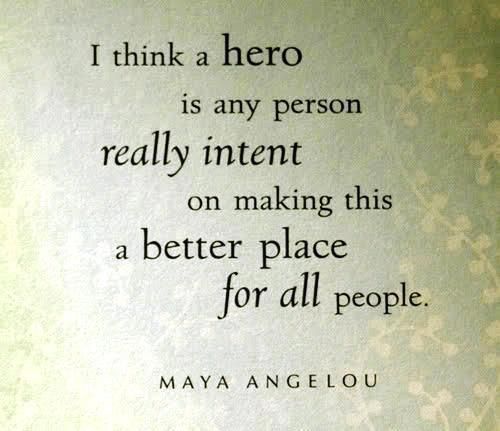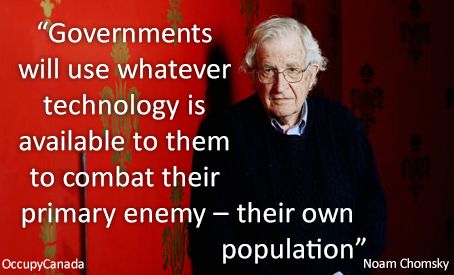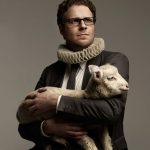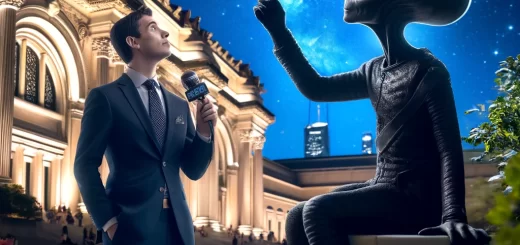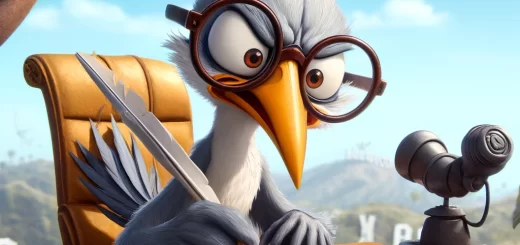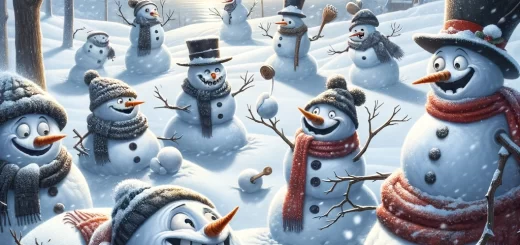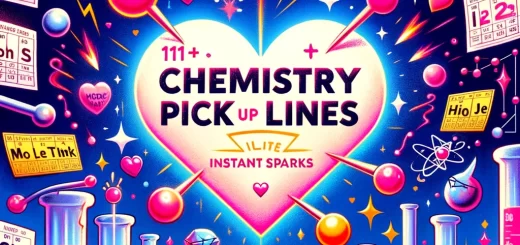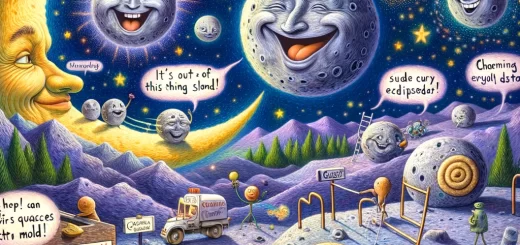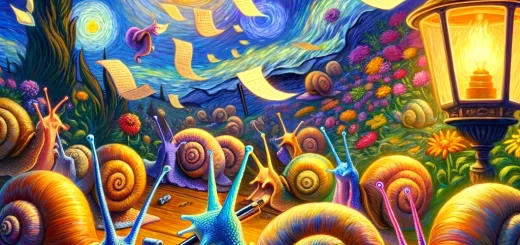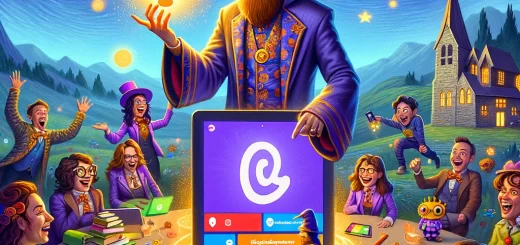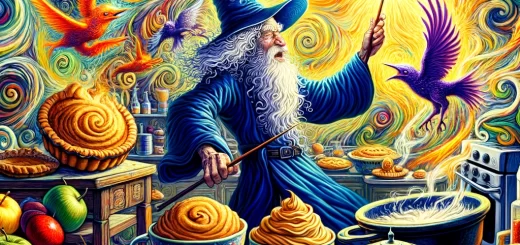179 Steven Spielberg Quotes That Will Inspire You
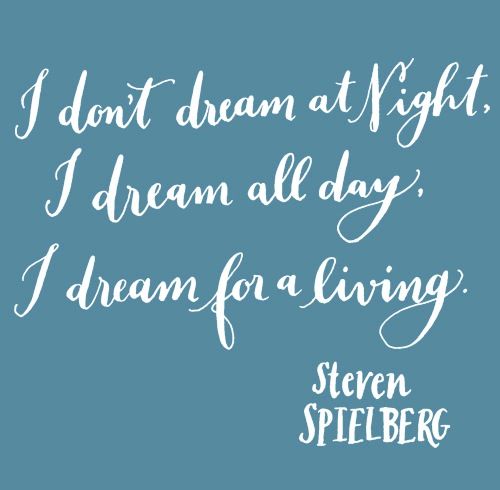
Enjoy the best of Steven Spielberg quotes. Quotes by Steven Spielberg, American Filmmaker.
The one ingredient I bring to all of my films is the ability to listen to anybody who has a good idea on the production. I’m very collaborative with actors, with my writers, with my editor, my cinematographer, with Johnny Williams who does all of my scores. And I just think from a very young age my parents taught me probably the most valuable lesson of my life – sometimes it’s better not to talk, but to listen.
I’ve always been very hopeful which I guess isn’t strange coming from me. I don’t want to call myself an optimist. I want to say that I’ve always been full of hope. I’ve never lost that. I have a lot of hope for this country and for the entire world.
Check out our awesome Optimism Quotes that will inspire you
All good ideas start out as bad ideas, that’s why it takes so long.
Before I go off and direct a movie I always look at 4 films. They tend to be: “Seven Samurai“, “Lawrence of Arabia“, “It’s a Wonderful Life“, and “The Searchers“.
I said to George there’s only one person that can play Indy’s father and that’s James Bond, and the original James Bond and the greatest James Bond, Sean Connery.
Check out the best of Sean Connery Quotes that will inspire you
[on seeing “The Godfather” for the first time] I felt that I should quit, that there was no reason to continue directing because I would never reach that level of confidence.
When I did “War Horse“, I was struck by the reality of being out in the fresh air, seeing the sky changing and light moving, and seeing the performances in real time. But being corralled in a digital world with no way out on Tintin became so thrilling to me, I was completely enveloped and enraptured.
“Close Encounters of the Third Kind” made so much money and rescued Columbia from bankruptcy. It was the most money I ever made, but it was a meagre success story. “Star Wars” was a phenomenon and I was the happy beneficiary of a couple of points from that movie which I am still seeing money on today.
[on “Schindler’s List“] Robin (Williams) would call me every week to cheer me up. And I’d tell him what scenes we’d shot.
Check out the best of Steven Spielberg movies
The person I enjoy working for more than anyone else is George Lucas. He’s the best boss I ever had because he’s the most talented boss I ever had.
What I’m saying is that I believe in showmanship.
The world would be a poorer place without “Doctor Who”.
[on discovering his calling in life] I think it was ‘A Tale of Two Cities‘. It was required reading. How do you require a child of let’s say twelve years-old to read ‘A Tale of Two Cities‘? What I did was just make little stick figures in the dog-eared sections of the book, one frame at a time, in different positions. And it was like a flip-book. I just did flip-books and saw these images come to life. That was the first time I was able to create an image that moved.
I’d rather direct than produce. Any day. And twice on Sunday.
Share these Steven Spielberg Quotes with your friends
[on winning the Best Director Oscar for “Saving Private Ryan]: Am I allowed to say I really wanted this?
I committed to directing “Catch Me If You Can” principally because Frank Abagnale Jr. did things that were the most astonishing scams I had ever heard. And I’m a big fan of scams. I loved “The Flim-Flam Man”. I loved “Scarecrow” with Gene Hackman. I loved “Elmer Gantry” – which I think is a bit of a scam movie. “The Sting” and “Butch Cassidy and the Sundance Kid” were kind of scams. You know, some of those villains, you have to sympathize with them.
Buy amazing Steven Spielberg movies at Amazon.com
I’ve had darkness in all the films, in “E.T. the Extra-Terrestrial“, “Jaws“. There are moments in “Raiders of the Lost Ark” that are brutally dark. I just don’t think people have stopped to study. They may not have stopped to think when they assume that I suddenly developed a dark side because of “Schindler’s List“. When critics carp about my dark side, I always wonder, “Well, did they really look in the shadows?”
[on Akira Kurosawa] Kurosawa is the pictorial Shakespeare of our time.
I would love to see the British film industry get back on its feet again.
[on friend Joan Crawford]: She is five feet four, but she looks six feet on the screen. In a two-shot with anyone, even Gable, (Clark Gable), your eyes fix on her. She is imperious, yet with a childlike sparkle. She is haughty, yet tender. She has no great range as an actress, yet within the range she can perform better than any of her contemporaries.
Check out our awesome collection of Joan Crawford Quotes
Once a month the sky falls on my head, I come to and I see another movie I want to make.
“Duel” was almost a once-in-a-lifetime story. You don’t get stories like that all the time.
Godzilla (“Godzilla, King of the Monsters!“) was the most masterful of all dinosaur movies because it made you believe it was really happening.
There are parts of “Hook” I love. I’m really proud of my work right up through Peter being hauled off in the parachute out the window, heading for Neverland. I’m a little less proud of the Neverland sequences, because I’m uncomfortable with that highly stylized world that today, of course, I would probably have done with live-action character work inside a completely digital set. But we didn’t have the technology to do it then, and my imagination only went as far as building physical sets and trying to paint trees blue and red.
[on filming “Lincoln“] All during the picture I called Daniel Day-Lewis Mr. President, but that was my idea. I also wore a suit every day which I don’t usually do when I’m directing. Everybody was dressed up in their period wardrobe. I did not wear 19th century wardrobe. I wore pretty good clothes from this era. I just wanted to blend in. We knew we were in the 21st century at all times. But once you stepped onto the stages of the White House, everybody really felt that they were making a contribution to remembering this critical moment in our shared history.
[on James Cameron] He gets a lot of points for being a techno-brat, but he is a very emotional storyteller.
If I weren’t a director, I would want to be a film composer.
With “Star Wars”, George (George Lucas) put the butter back into the popcorn.
Check out 12 Really Funny Star Wars Memes that will make you laugh
I always like to think of the audience when I am directing. Because I am the audience.
{On his behavior following the premiere of a new film] My ritual is total blackout. No radio, no television, no internet, no newspapers. I just want to hear one number, which is the Monday-morning number.
I think every film I make that puts characters in jeopardy is me purging my own fears, sadly only to re-engage with them shortly after the release of the picture. I’ll never make enough films to purge them all.
It boggles my mind how much I feel is left on my plate. There are things on the other side of the supper table stewing in pots that I’m not really even aware of. I would retire if I didn’t feel that way. [2009]
Liked these Steven Spielberg Quotes? Then learn more about him: check out some interesting books about him
I don’t plan my career. I don’t think I’ll go dark, dark, dark, then light, then dark. I react spontaneously to what falls into my arms, to what is right at the time. I’ve never made a conscious choice, except maybe for the Indiana Jones sequels and “The Lost World: Jurassic Park“. They’re the only times I’ve said, “Okay, I need to make these pictures for the public because they’re craving it.” Also, with Lost World, I hadn’t directed for three years so I wanted to do something I felt secure making. I didn’t want to make a serious picture like “Schindler’s List“.
All those horrible, traumatic years I spent as a kid became what I draw from creatively today.
The most expensive habit in the world is celluloid, not heroin, and I need a fix every two years.
I have made almost as many films in England as I have in America. I will come back to England again and again.
I feel like I’ve been engaged to the British Empire since 1980 and tonight you have given me the ring knighthood.
I’ll probably never win an Oscar, but I’ll sure have a lot of fun! I really believe that movies are the great escape!
I interpret my dreams one way and make a movie out of them and people see my movies and make them part of their dreams.
Disney is the birthplace of imagination and has always been as close to the worldwide audience as any company ever has.
Browse a huge selection of Steven Spielberg movies
[laughingly, to composer John Williams who first played the theme for “Jaws” on the piano] Well, that isn’t going to do it.
At E3 games convention about partnership with EA: I am a gamer myself, and I really wanted to create a video game that I could play with my kids.
[on “A.I. Artificial Intelligence”] A.I. is a Kubrick concept, a Kubrick approach, a Kubrick philosophy, generalled by Kubrick and charged by me.
[About “Munich“] I am not attacking Israel with this film. In no way, shape or form am I doing that. I’m simply asking why the world feels that the only acceptable response to violence is counter-violence. I’m not answering that question. Just asking it.
[on beginning film production at the age of eleven] It cost me about fifty dollars to make the movie, and I would charge a quarter a ticket, and at the end of the summer I might have fifty-five dollars. That’s kind of the way Hollywood works today. Small margins.
As long as there’s been Transformers, I’ve been one of the biggest fans. And I always thought that somewhere in this genius concept, there was a movie.
When you listen, you learn, You absorb like a sponge – and your life becomes so much better than when you are just trying to be listened to all the time.
I don’t drink coffee. I’ve never had a cup of coffee in my entire life. That’s something you probably don’t know about me. I’ve hated the taste since I was a kid.
Daniel Day-Lewis would have always been counted as one of the greatest of actors, were he from the silent era, the golden age of film or even some time in cinema’s distant future.
What kept us going was the thought that David Lean, at 54, had done this every day for a year. David Lean was our criterion for survival – on filming “Raiders of the Lost Ark” in Tunisia.
If Bush (George W. Bush), as I believe, has reliable information on the fact that Saddam Hussein is making weapons of mass destruction, I cannot not support the policies of his government.
“Poltergeist” is the darker side of my nature, it’s me when I was scaring my younger sisters half to death. In Poltergeist, I wanted to terrify and I also wanted to amuse – I tried to mix the laughs and screams together.
[Interview on “Inside the Actors Studio” 14 March 1999] I think “cutting-in-the-camera” is the greatest lesson that any director can learn about filmmaking, because when you don’t got it, you don’t got it, and there’s no way to go back and get it…
I don’t work weekends. Weekends are for my kids. And I have dinner at home every night when I’m not physically directing a movie – I get home by six. I put the kids to bed and tell them stories and take them to school the next morning. I work basically from 9.30 to 5.30 and I’m strict about that.
I tried twice to get Cubby Broccoli to hire me to direct a Bond film. The first time I met him in person was after I’d done “Duel”. I told him I wanted to do a Bond picture more than anything else in the world and he said, “We only hire British, experienced directors.” So I failed in both categories.
[Receiving the Cecil B. DeMille award at the 66th Annual Golden Globe Awards] Whenever I try to tell a risky story, whether it’s about sharks or dinosaurs, or about aliens or about history, I’ll always be thinking, “Am I going to get away with this?” When I don’t have that worry, I won’t make that movie.
[When asked about being conflicted whether to make more artistic films, or more commercial films]: All the time, but when you have a story that is very commercial and simple, you have to find the art. You have to take the other elements of the film and make them as good as possible, and doing that will uplift the film.
I think that the Internet is going to effect the most profound change on the entertainment industries combined. And we’re all gonna be tuning into the most popular Internet show in the world, which will be coming from some place in Des Moines. We’re all gonna lose our jobs. We’re all gonna be on the Internet trying to find an audience.
The older I get, the more I look at movies as a moving miracle. Audiences are harder to please if you’re just giving them special effects, but they’re easy to please if it’s a good story. The audience is also the toughest critic – a good story that exists in your world may not be the first choice for an audience. So I just do the best I can.
After a scary movie about the world almost ending, we can walk into the sunlight and say, “Wow, everything’s still here. I’m OK!” We like to tease ourselves. Human beings have a need to get close to the edge and, when filmmakers or writers can take them to the edge, it feels like a dream where you’re falling, but you wake up just before you hit the ground.
I’ve never used John Williams to tell people how to feel. I use John Williams to enhance my vision and my thoughts emotionally from scene to scene. He’ll signal when the shark is coming, which are the most famous single notes next to Beethoven’s Fifth. In telling a story, I will use every tool in my arsenal. I will do anything in my power to communicate the best story as I know how.
I’m very relaxed about Oscars. I’ll admit to you that I wasn’t relaxed before I won for “Schindler’s List”. I was pretty much worried about it and almost wanted to get one behind me to get the anxiety out of my gut every time December reared its ugly head. So after I won for Schindler’s and “Saving Private Ryan”, I have no expectations of ever winning again. Whatever happens, happens.
[on Richard Attenborough] Dickie Attenborough was passionate about everything in his life – family, friends, country and career. He made a gift to the world with his emotional epic “Gandhi” and he was the perfect ringmaster to bring the dinosaurs back to life as John Hammond in “Jurassic Park“. He was a dear friend and I am standing in an endless line of those who completely adored him.
I’ve taken the time to familiarize myself with the impressive field of Democratic candidates and am convinced that Hillary Clinton is the most qualified candidate to lead us from her first day in the White House. Hillary is a strong leader and is respected the world over. As president, she will bring America back together, rebuild our prestige abroad and ensure our protection here at home.
There’s no other way to learn about it, except through documentaries. I encourage documentarians to continue telling stories about World War II. I think documentaries are the greatest way to educate an entire generation that doesn’t often look back to learn anything about the history that provided a safe haven for so many of us today. Documentaries are the first line of education, and the second line of education is dramatization, such as “The Pacific.
[on Daniel Day-Lewis, preparing to portray Abraham Lincoln] Daniel did something first that made me sad. He wanted to wait a year. And it was a masterstroke because he had a year to do research. He had a year to find the character in his own private process. He had a year to discover how Lincoln sounded, and he found the voice. He had Lincoln so embedded in his psyche, in his soul, in his mind, that I would come to work in the morning and Lincoln would sit behind his desk, and we could begin.
Being a movie-maker means you get to live many, many lifetimes. It’s the same reason audiences go to movies, I think. When my daughter Sasha (Sasha Spielberg) was 5 years old, we would be watching something on TV and she’d point to a character on screen and say, “Daddy, that’s me.” Ten minutes later a new character would come on screen and she’d say, “No, Daddy. That’s me.” Throughout the movie she would pick different people to become. I think that’s what we all do. We just don’t say it as sweetly.
John has given movies a musical language that can be spoken and understood in every country on this planet. John Williams is the most common language through which people of all ages communicate and remember to each other why they love movies. I am the only person who can say that I’ve collaborated with John for exactly half of his life. Without question, he has been the single most significant contributor to my success as a filmmaker. This nation’s greatest composer and our national treasure is also one of the greatest friends I have ever had in my entire life.
I think most of my movies are personal movies. I think the most personal movie I’ve made is “Schindler’s List“. I think the second-most personal movie I have ever made is “E.T. the Extra-Terrestrial”. I also find “The Color Purple” to be a personal film for me. So I’ve made a number of personal films. But I haven’t made a movie yet that is actually a mirror neuron of my factual life and I don’t think I ever will. My sister wrote a script about our lives and that might come around again some day, but I’ve always stayed away from anything that is too biographical.
[on film] My favorite and preferred step between imagination and image is a strip of photochemistry that can be held, twisted, folded, looked at with the naked eye, or projected on to a surface for others to see. It has a scent and it is imperfect. If you get too close to the moving image, it’s like impressionist art. And if you stand back, it can be utterly photo-realistic. You can watch the grain, which I like to think of as the visible, erratic molecules of a new creative language. After all, this “stuff” of dreams is mankind’s most original medium, and dates back to 1895. Today, its years are numbered, but I will remain loyal to this analogue art-form until the last lab closes.
[on his friend and frequent collaborator Michael Crichton] Michael’s talent out scaled even his own dinosaurs of ‘Jurassic Park.’ He was the greatest at blending science with big theatrical concepts, which is what gave credibility to dinosaurs again walking the earth. In the early days, Michael had just sold ‘The Andromeda Strain’ to Robert Wise at Universal and I had recently signed on as a contract TV director there. My first assignment was to show Michael Crichton around the Universal lot. We became friends and professionally ‘Jurassic Park,’ ‘ER,’ and ‘Twister’ followed. Michael was a gentle soul who reserved his flamboyant side for his novels. There is no one in the wings that will ever take his place.
[on Janusz Kaminski] I was watching television and saw his name on a TV movie, “Wildflower”, that was beautifully photographed, so I called up the head of my TV department and asked him to consider hiring him to do a pilot we produced about the Civil War, “Class of ’61”. The director agreed to use Janusz and he was great. I think Janusz has brought a lighting style to my movies that I’d never had before. Even Allen Daviau who had done three pictures with me, who I think is the greatest lighting cameraman in town. But Janusz brought more daring, dangerous light into my films. I set the camera. I do all the blocking. I choose the lenses. I compose everything. But Janusz, basically, is my lighting guy. And he’s a master painter with light; he’s made tremendous contributions to my work through his art.
I’ve often wondered what gets me to direct and what gets me to produce. I’ve never been able to answer the question adequately even for myself. When something gets a stranglehold on me and compels me to direct it, I don’t question why. I don’t look a gift horse in the mouth. I just know what it feels like to be overwhelmed with a desire to make a movie. And I also know as a businessman what it means to be overwhelmed with a desire to produce a good story. But there’s a great difference between production and direction for me. Once I’m producing something, I never think, “Gee, I wonder what it would have been like if I had directed it.” I may often question choices I make as a producer. But I’ve never questioned the choices I make as a director. Whether in success or in failure, I’m proud of every single movie I’ve ever directed.
I’m as guilty as anyone, because I helped to herald the digital era with “Jurassic Park“. But the danger is that it can be abused to the point where nothing is eye-popping any more. The difference between making “Jaws” 31 years ago and “War of the Worlds” is that today, anything I can imagine, I can realize on film. Then, when my mechanical shark was being repaired and I had to shoot something, I had to make the water scary. I relied on the audience’s imagination, aided by where I put the camera. Today, it would be a digital shark. It would cost a hell of a lot more, but never break down. As a result, I probably would have used it four times as much, which would have made the film four times less scary. Jaws is scary because of what you don’t see, not because of what you do. We need to bring the audience back into partnership with storytelling.
I had dinner with the founder of Yahoo! about seven years ago in Japan. I had my son, who is now sixteen, he was much younger then. I took him to a tea house. We had Geishas, they were serving us tea and I had a little soki and we were talking. And he kept sitting across from me and he kept saying “Yahoo! You have to know what Yahoo!”… and he was going crazy over this thing called Yahoo! And I thought he was actually out of his brain. You know, because he kept talking about Yahoo! and I thought he was trying to say “Yahoo!” And he was, but I had no idea what he was building. And he was so thrilled with what was happening in his world. And this was way beyond my world at that time. And how I look back. I thought: God if I could have been a little bit nicer to that guy, he might have called me up and offered me a chance to invest early. (2002).
[on working on “The Pacific”, “Band of Brothers” and “Saving Private Ryan”] – What moved us to tell these stories, based on these survivors and veterans, was to see what happens to the human soul throughout this particular engagement. These islands were stepping stones to the mainland of Japan. We weren’t trained by the drill instructors stateside. We were trained by the enemy, in how to fight the enemy. They trained us how to fight like them. I don’t want to compare one war to the other, in terms of savagery, but there’s a level when nature and humanity conspire against the individual. To see what happens to those individuals, throughout the entire course of events, leading up to the dropping of the two atomic bombs, is something that was very, very hard for the actors, the writers and all of us to put on the screen, but we felt we had to try.
[on “Indiana Jones and the Kingdom of the Crystal Skull”] Harrison became Indiana Jones in a millisecond. He came on set, he donned the hat and everything came with it; his laconic sense of humour, his willingness to take a punch…and get hurt by that punch. All the things that Harrison, George, Larry Kasdan and I originally created. He brought all this back to life as if no time had elapsed since the third movie. My favourite memories from the shoot are my deepening respect for Harrison, not only as an actor but as a dear friend. We’ve gone off and made other movies which mean our paths have not crossed all that often. I’m not the most social guy in the world and neither is
Harrison, so we didn’t spend much time together, but we actually became great buddies on this movie, more even than on the first three. It’s the best thing that came out of this experience for me.
I think that science fiction is the child of every soul with an imagination. There’s no predicting what the next generation of imaginative writers and directors be giving all of us. Sci-fi, in a way, is the greatest exercise. It’s like turning your brain into a muscle. It just exercises every single aspect of your brain. It sometimes forces filmmakers to think, on the one hand, as a quantum physicist and, on the other hand, as a capricious idealist. It’s fun. It’s like when actors say they would rather play the villain than the hero because the villain has more character. Science fiction is the character of every genre. I actually have a dream sci-fi project that I’m not ready to talk about yet. But it’s in the early, early, early planning stages and I’m very excited about it. It will be an original screenplay. I’m not going to write it. I wrote the story and somebody else will write the screenplay. [2001]
[on if the soldier’s journey is the ultimate hero’s journey] – For one thing, I don’t think that anybody in any war thinks of themselves as a hero. The minute anybody presumes that they are heroes, they get their boots taken away from them and buried in the sand. That’s not going to happen. In the re-creation of combat situations, and this is coming from a director who’s never been in one, being mindful of what these veterans have actually gone through, you find that the biggest concern is that you don’t look at war as a geopolitical endeavor. You look at war as something that is putting your best friend in jeopardy. You are responsible for the person in front of you and the person behind you, and the person to the left of you and the person to the right of you. Those are the small pods that will inadvertently create a hero, but that is someone else’s observation, not the observation of those kids in the foxholes.
[During an interview with Roger Ebert regarding his film “Munich” and the response from Jewish critics that claim it depicts Israeli and Palestinian causes as morally equivalent]: Frankly, I think that’s a stupid charge. The people who attack the movie based on ‘moral equivalence’ are some of the same people who say diplomacy itself is an exercise in ‘moral equivalence’ and that war is the only answer. That the only way to fight terrorism is to dehumanize the terrorists by asking no questions about who they are and where they come from. What I believe is, every act of terrorism requires a strong response, but we must also pay attention to the causes. That’s why we have brains and the power to think passionately. Understanding does not require approval. Understanding is not the same as inaction. Understanding is a very muscular act. If I’m endorsing understanding and being attacked for that, then I am almost flattered.
In “Saving Private Ryan” I had a sense that I was establishing a template, based on the experiences communicated to me by the veterans who fought that morning on Dog Green, Omaha Beach, and their experiences, and the very few surviving photographs of the great war correspondent, Robert Capa. I combined those photographs to try to find a 24-frame-per-second equivalent for how I can show that kind of terror and chaos without making a movie that looked elegant and beautiful and in full living color, very much like war movies had been made in the past. It wasn’t that I was trying to break the mold of the old war movie approach, visually, but I was simply trying to validate all of this testimony that had been communicated to us, based on the young men that lived and survived that battle. I didn’t know it was going to establish a look for war movies, but it was certainly what I thought was right for that particular story.
Times have changed. It’s like when the first 747 landed at Los Angeles international airport: everybody thought flying through the sky was the most greatest marvel they had ever seen – floating through the air, seemingly in slow motion. Today we never even look at 747s. They’re a dime a dozen and it’s that way with the blockbuster. If there was one blockbuster every three years, it meant a lot more than when you have a blockbuster every three weeks. It’s the job of each of these studios to market these movies as the must-see movie of the year, so they go after blockbuster status by creating a grand illusion. Sometimes they’ve got a real engine behind that grand illusion, meaning the movie is damned good and the audience will say they got their money’s worth. Other times, the audience comes on the promise of seeing something they’ve never ever seen before and it becomes just another sci-fi action yarn and they feel disappointed.
I get that same queasy, nervous, thrilling feeling every time I go to work. That’s never worn off since I was 12 years-old with my dad’s 8-millimeter movie camera. The thrill hasn’t changed at all. In fact, as I’ve gotten older, it’s actually increased, because now I appreciate the collaboration. When I was a kid, there was no collaboration, it’s you with a camera bossing your friends around. But as an adult, filmmaking is all about appreciating the talents of the people you surround yourself with and knowing you could never have made any of these films by yourself. My job was constantly to keep a movie family going. I’m blessed with the same thing that John Ford and Howard Hawks and Alfred Hitchcock were blessed with, a mini-industry very similar to the one from the golden era of Hollywood, where it was the same people making movies with you each and every time. And it makes life so much more enjoyable when you get to go home to your family and go to work with your other family.
[on awarding the Palme d’Or to “Blue Is the Warmest Color” at the 2013 Cannes Film Festival] The film was a great love story that made all of us privileged, not embarrassed to be flies on the wall, but privileged to have been invited to see this story of deep love and deep heartbreak evolve from the beginning in a wonderful way where time stood still, because the director didn’t put any constraints on the narrative – he let the scenes play as long as scenes play in real life. We were absolutely spellbound by the brilliance of the performances and especially the way the director observed his players – the way he just let the characters breathe. The spaces were as important as what they said – what they weren’t saying – and we just felt that it was a profound love story and whether or not it plays in the United States was not a criterion for any of our choices. We didn’t think about how it was going to play; we just were really happy that somebody had the courage to tell the story the way they told it.
[About the criticism he received for “The Color Purple”] Most of the criticism came from directors that felt that we had overlooked them, and that it should have been a black director telling a black story. That was the main criticism. The other criticism was that I had softened the book. I have always copped to that. I made the movie I wanted to make from Alice Walker’s book. Alice was on the set a lot of the time and could have always stepped forward to say, “You know, this is too Disney. This is not the way I envisioned the scene going down.” She was very supportive during filmmaking, and so I felt that we were doing a good job adapting her novel. There were certain things in the [lesbian] relationship between Shug Avery and Celie that were finely detailed in Alice’s book, that I didn’t feel could get a [PG-13] rating. And I was shy about it. In that sense, perhaps I was the wrong director to acquit some of the more sexually honest encounters between Shug and Celie, because I did soften those. I basically took something that was extremely erotic and very intentional, and I reduced it to a simple kiss. I got a lot of criticism for that.
My movies are all different. I’ve tried to make every movie as if it was made by a different director, because I’m very conscious of not wanting to impose a consistent style on subject matter that is not necessarily suited to that style. So I try to re-invent my own eye every time I tackle a new subject. But it’s hard, because everybody has style. You can’t help it. It just comes off you like pollen. I mean, if you’re a bee, you’re a bee, but at the same time I try very hard to work a little out of the box every time I make a choice. And I had to go back to a box that I had helped invent in the 1980s to accomplish the task of bringing Indiana Jones back to life in the 21st century. We went right back to the blazing Technicolor style of the first three installments. For “Munich”, I certainly tried to bring an early-70s Hollywood style, a cinéma-vérité style, with zoom-lenses, and a lot of the tools that were used to make movies in the 70s, one of my favorites being “The Day of the Jackal”, the Fred Zinnemann film. But I didn’t want to update Indiana Jones to the 1950s beyond hair, makeup, costumes and cars. I wanted it to look very similar to the first three pictures.
I’ve learned that we can do just about anything under the sun with computers. So the question becomes, should we? Or, should we remind ourselves, as filmmakers, to be careful and remember that there is nothing more important than how a story is told? If storytelling becomes a byproduct of the digital revolution, then the medium itself is corrupted. On the other hand, if digital tools are simply a way to enhance a conventional story, then in that case, they can make telling that story easier. It’s easier and more practical to show 20,000 soldiers in the Crimean War using computers, obviously. So, that’s fine. But now, we have technology that can replace actors, or an entire performance in an already existing movie. We could cut out Humphrey Bogart and replace him with Vin Diesel, if somebody wanted. Who would want to? Well, there might be people who would. That’s why we have to be careful. Movies reflect our cultural heritage from the period in time in which they were made. Therefore, altering them can destroy that historical perspective. That’s disrespectful of history, which is a big issue for me. The situation is like walking a tightrope – we have to move forward, but we have to be careful.
I had a lot to prove when I made “Raiders of the Lost Ark” because I had done three movies in a row that had gone wildly over budget and schedule, “1941”, “Close Encounters of the Third Kind” and “Jaws”. I was ready to turn over a new leaf and Raiders was my chance to make a movie responsibly – under schedule and under budget. Fortunately George Lucas gave me a lot of support and help with preparation. I wasn’t dreaming of big box office or making a classic; all I was focused on was making a film the audience would like and doing it in a way that was fiscally responsible. I think we were all surprised by the worldwide success of Raiders. I remember hearing people quote lines from the film or seeing kids pretend to be the characters, and realizing that the film had gone beyond box office success and had entered popular culture. That was one of the happy aftershocks of making that movie. More than anything, we want our films to be watchable and Raiders is a movie I can watch with my kids and completely detach myself from the fact that I directed it. I sit back and enjoy it. For a kid who grew up dreaming of making memorable images, it’s a thrill to know Raiders is one of those films where people just have to see the silhouette of the main character, and they immediately think, “Indiana Jones!”
I never know what I’m in for. Most of my presumptions about a production are usually wrong. For instance, with “Schindler’s List” I was pretty certain that whatever came my way in Poland I could tolerate, and just put my camera between myself and the subject, and protect myself by creating my own aesthetic distance. And immediately, on the first day of shooting, that broke down. I didn’t have that as a safety net and immediately I realized that that this was about to become the most personal professional experience of my life. It was a devastatingly insightful experience, but it’s something I still haven’t gotten over. I think back on the production of Schindler’s List with very sad memories, because of the subject matter, not because of the working experience. The working experience was nearly perfect because everybody held on to each other in that production. We formed a circle. It was very therapeutic, and for a lot of people, it changed their lives. A lot of the actors, a lot of the crew, it changed their lives. It changed my life, for sure. But other productions I’ve gone into with a blythe spirit, thinking, This film’s a pushover. It’s often when I take that attitude, the movie turns around and runs over me as if it were a tank. So I’ve tried my best to stop second-guessing what the working experience is going to be like. Because I’m usually wrong.
- Met Gala 2024 Uncovered: The Shocking Space Alien Story! - May 9, 2024
- Mufasa The Lion King: A Fresh Roar or Same Old Tale? - May 3, 2024
- Snow Jokes That Guarantee a Blizzard of Giggles! - February 26, 2024
